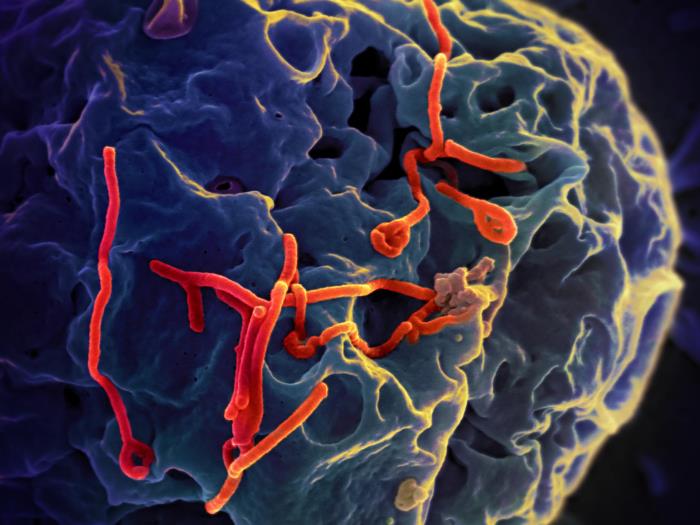Ebola Update: 1st Case Diagnosed in the US

A patient in Texas is the first person to be diagnosed with Ebola in the United States, according to the Centers for Disease Control and Prevention.
The patient had recently traveled to the United States from West Africa, a region that is currently experiencing the worst outbreak of Ebola in history.
The man flew out of Liberia on Sept. 19 and arrived in the United States on Sept. 20. He did not have symptoms during his flight or when he landed, but began showing symptoms around Sept. 24, Dr. Tom Frieden, director of the CDC, said at a news conference today.
The patient sought health care on Sept. 26 and was admitted on Sept. 28 to Texas Health Presbyterian Hospital in Dallas, where he was isolated and tested for Ebola. Today, the patient tested positive for the Ebola Zaire virus, the strain involved in the current outbreak, health officials said.
Frieden stressed that Ebola patients are only contagious when they show symptoms, and so this patient was not infectious during his flight. [Ebola Virus: 5 Things You Should Know]
"There's no reason to think that anyone who was on the flight he was on would be at risk," Frieden said. "There is no risk from having contact with somebody who's either recovered from Ebola … or people who have been exposed but are not yet sick from it," Frieden said. People in West Africa are also screened for fevers, a symptom of Ebola, before they are allowed to fly, Frieden said.
The total number of confirmed Ebola cases in the three most affected countries — Guinea, Liberia and Sierra Leone — has now surpassed 6,500, and more than 3,000 people have died, according the World Health Organization.
Sign up for the Live Science daily newsletter now
Get the world’s most fascinating discoveries delivered straight to your inbox.
Previously, four health workers from the U.S. were infected with Ebola virus while working in West Africa, and were later transported to U.S. hospitals for treatment.
The CDC will now work to identify anyone who had contact with the Texas patient while he was sick.
Although it's possible that someone who had contact with the man while he was showing symptoms, such as a close family member, could possibly develop Ebola, "I have no doubt that we will control this importation, or this case of Ebola, so that it does not spread widely in this country," Frieden said. "We're stopping it in its tracks,", Frieden said.
It does not appear that the current patient was involved in the Ebola response in West Africa, and he came to the United States to visit family members who live here, Frieden said. Health officials are working to provide the most effective care for the patient as safely as possible, Frieden said.
Follow Rachael Rettner @RachaelRettner. Follow Live Science @livescience, Facebook & Google+. Original article on Live Science.

Rachael is a Live Science contributor, and was a former channel editor and senior writer for Live Science between 2010 and 2022. She has a master's degree in journalism from New York University's Science, Health and Environmental Reporting Program. She also holds a B.S. in molecular biology and an M.S. in biology from the University of California, San Diego. Her work has appeared in Scienceline, The Washington Post and Scientific American.









